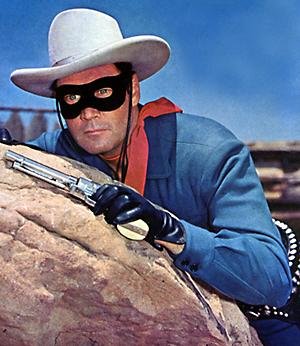BRYCE ON BOOKS
- Two published biographies, about Churchill & Jackson, can teach us some important lessons regarding leadership.
(Click for
AUDIO VERSION)
To use this segment in a Radio broadcast or Podcast, send TIM a request.

On a recent vacation, I read two books:
"CHURCHILL & SEA POWER" - Christopher M. Bell (2013, Oxford University Press, ISBN 987-0-19-969357-3) - Bell, is an Associate Professor of History at Dalhousie University in Halifax, Nova Scotia..
Both books had their own unique story to tell, but from my perspective they provided me with some interesting insight into what made Churchill and Jackson effective leaders. In Part One I discussed the Churchill book. In Part Two, herein, I will address the Jackson book and make some conclusions about both leaders.
"AMERICAN LION - ANDREW JACKSON IN THE WHITE HOUSE"
This book has been out for a few years already, but I purchased it as I see a parallel between the pre-Civil War years of the United States and today. Jackson was the most influential president of this period. Naturally, I wanted to know why. This book also received some excellent reviews. Meacham's new book on Thomas Jefferson was recently released, which I hope to read soon.
The first half of "American Lion" reminded me of television's "Downton Abbey" filled with gossip and faux pas of protocol. Coming from the western frontier, Jackson was initially considered a country bumpkin by the Washington elite. He surprised them by his observance of poise, etiquette, intelligence, and understanding of politics. The Washington establishment quickly learned not to underestimate him.
Jackson possessed a paternalistic quality, whereby he considered the citizens his kin. Not surprising, Jackson is regarded as the founder of the Democratic Party, "the party of the people." He had a strong sense of family probably because he came from a broken one himself. Jackson never knew his father as he had died prior to Andrew's birth. The three Jackson brothers, all in their teens, served in the Revolutionary War which ultimately claimed the lives of Andrew's brothers. Young Andrew was close to his mother, Elizabeth, but alas she too perished during the war. Jackson thereby became an orphan at age 14.
Years after her death, Jackson was fond of quoting the advice his mother gave him shortly before she died:
"Andrew, if I should not see you again, I wish you to remember and treasure up some things I have already said to you: in this world you will have to make your own way. To do that you must have friends. You can make friends by being honest, and you can keep them by being steadfast. You must keep in mind that friends worth having will in the long run expect as much from you as they give to you. To forget an obligation or be ungrateful for a kindness is a base crime - not merely a fault or a sin, but an actual crime. Men guilty of it sooner or later must suffer the penalty. In personal conduct be always polite but never obsequious. None will respect you more than you respect yourself. Avoid quarrels as long as you can without yielding to imposition. But sustain your manhood always. Never bring a suit in law for assault and battery or for defamation. The law affords no remedy for such outrages that can satisfy the feelings of a true man. Never would the feelings of others. Never brook wanton outrage upon your own feelings. If you ever have to vindicate your feelings or defend your honor, do it calmly. If angry at first, wait till your wrath cools before you proceed."
This became the law of his life and gives us great insight into his personality.
His nickname became "Old Hickory" which denoted his toughness, particularly during the War of 1812, where he earned his celebrity as general by defeating the British in New Orleans. This propelled him to a political career. Even though he was defeated in his first campaign for president, he went on to win two consecutive terms from 1829 to 1837. Although his wife, Rachel, saw him win election, she died just before Jackson was installed as president. Feeling lonely, Jackson recruited his nephew, Andrew Donelson, to become his personal secretary and by doing so the Donelson family took up quarters in the White House. Donelson's 21 year old wife, Emily, thereby became the official hostess of the White House. This particularly agreed with Jackson as he desperately craved a family environment.
Prior to Jackson's arrival at the Capitol, the executive branch was considered weaker than the legislative branch (Congress). This all changed under Jackson. Because of his strong personality, coupled with toughness and perseverance, Jackson expanded the role of the presidency, much to the consternation of Congress. Three points were of particular interest to him: a love of country, a commitment to the Union, and the people. These three elements were the variables Jackson considered as he conquered many difficult challenges of the day, to wit:
* He paid off the federal debt. He considered being beholden to creditors a dangerous policy to pursue (something I wish today's government would embrace).
* He eliminated the Bank of the United States. To Jackson, the bank had become too influential and catered to the rich as opposed to the people (again, another parallel to today).
* He upheld American interests abroad when threatened. He took retribution from Sumatran pirates who attacked and plundered the American merchant ship, "Friendship." He also stood up to France who initially refused to pay off a war debt of $5 million. Fearing Jackson would go to war with France, the French paid off their debt.
* He moved the Indians west of the Mississippi, a highly controversial move as Jackson subverted existing treaties. Nonetheless, he felt obliged to bring safety and security to the country.
* He put down an uprising in South Carolina to secede from the Union. Jackson believed in states rights, but he was deeply committed to maintaining the Union. 32 years later, South Carolina would secede thereby marking the beginning of the American Civil War.
All of these matters were difficult and needed to be addressed. As in war, Jackson rose to the occasion and he tackled them head-on. Although he could be political, Jackson would be confrontational after his mind had been made up: "Take time to deliberate; but when the time for action arrives, stop thinking and go in."
Jackson's legacy was expansion of the power of the presidency thereby earning him the wrath of the Congress. His adversaries were primarily John C. Calhoun of South Carolina (and his first Vice President), and Henry Clay of Kentucky, both of whom characterized Jackson as tyrannical. Jackson was ultimately censured by the Congress which chaffed him greatly, causing him to spend years to expunge the decision which was done shortly before his death. Despite the Congress, the American people loved him, which baffled the congressmen of the day. His dominance as president was such that Jackson overshadowed all of his successors until Lincoln who became the first president since Jackson to be elected to consecutive terms of office. All others had been elected to just one.
Churchill and Jackson
Reading these two books, back-to-back, I marveled at the skill of Churchill and Jackson as leaders. Both were intelligent and decisive men; they abhorred indecisiveness and understood the necessity of tackling a problem immediately as opposed to waiting and allowing it to fester. They both knew how to improvise, going so far as to bend the rules as long as the means justified the end result. Both were men of integrity where their word was their bond and they assumed responsibility for their actions even in the face of disaster. And they both possessed a strong sense of family. Perhaps their most important attribute was their sense of morality; that they always tried to do what was right and honorable.
As Jackson wrote an acquaintance in 1826: "You cannot have forgotten the advice I give to all my young friends, that is to say, as they pass through life have apparent confidence in all, real confidence in none, until from actual experience it is found that the individual is worthy of it - from this rule I have never departed... When I have found men mere politicians, bending to the popular breeze and changing with it, for the self-popularity, I have ever shunned them, believing that they were unworthy of my confidence - but still treat them with hospitality and politeness."
I only wish our political leaders of today possessed such strength of character.
Keep the Faith!
Note: All trademarks both marked and unmarked belong to their respective companies.
Copyright © 2013 by Tim Bryce. All rights reserved.
NEXT UP: MOTIVATING EMPLOYEES - Some ideas on how to motivate your workers. And, No, one size does not fit all.
Listen to Tim on WJTN-AM (News Talk 1240) "The Town Square" with host John Siggins (Mondays, Wednesdays, Fridays, 12:30-3:00pm ET), and KGAB-AM 650 "The Morning Zone" with host Dave Chaffin (weekdays. 6:00-10:00am MST).
Also look for Tim's postings in the
Palm Harbor Patch,
The Gentlemen's Association, and throughout the Internet.
 Last month, the Department of Defense and Joint Chiefs of Staff announced women soldiers would be allowed to be placed in combat situations, a somewhat controversial change in policy. I'm not sure how this will play in Poughkeepsie or just about anywhere else. I do not doubt the tenacity and determination of women soldiers, but their use in the infantry isn't exactly being greeted with a lot of enthusiasm. This is another area where people are trying to press the envelope, perhaps for the wrong reasons, namely sexual equality.
Last month, the Department of Defense and Joint Chiefs of Staff announced women soldiers would be allowed to be placed in combat situations, a somewhat controversial change in policy. I'm not sure how this will play in Poughkeepsie or just about anywhere else. I do not doubt the tenacity and determination of women soldiers, but their use in the infantry isn't exactly being greeted with a lot of enthusiasm. This is another area where people are trying to press the envelope, perhaps for the wrong reasons, namely sexual equality.
 Tim Bryce is a writer and the Managing Director of M&JB Investment Company (M&JB) of Palm Harbor, Florida and has over 30 years of experience in the management consulting field. He can be reached at timb001@phmainstreet.com
Tim Bryce is a writer and the Managing Director of M&JB Investment Company (M&JB) of Palm Harbor, Florida and has over 30 years of experience in the management consulting field. He can be reached at timb001@phmainstreet.com Not long ago I went to the drive-thru window at our local bank to make a deposit. I was dutifully greeted by the attendent who I had chatted with before on numerous occasions. On this particular visit, the attendant, who I judged to be in her mid-twenties, was delighted to inform me she was now the "Head Cashier." I congratulated her on the promotion, finished my business and departed. Over the next several weeks though, whenever I visited the bank, she made a point of letting me know she was the "Head Cashier" with an air of boasting about her. I presume she did this with all of her customers, that I wasn't just being singled out. She had even gone so far as to etch a new name plate with her title boldly printed on it. It was important to her that the bank's customers recognize her authority. Frankly, I just wanted to process my transactions and go about my business. Although I initially commended her on the promotion, I really couldn't have cared less.
Not long ago I went to the drive-thru window at our local bank to make a deposit. I was dutifully greeted by the attendent who I had chatted with before on numerous occasions. On this particular visit, the attendant, who I judged to be in her mid-twenties, was delighted to inform me she was now the "Head Cashier." I congratulated her on the promotion, finished my business and departed. Over the next several weeks though, whenever I visited the bank, she made a point of letting me know she was the "Head Cashier" with an air of boasting about her. I presume she did this with all of her customers, that I wasn't just being singled out. She had even gone so far as to etch a new name plate with her title boldly printed on it. It was important to her that the bank's customers recognize her authority. Frankly, I just wanted to process my transactions and go about my business. Although I initially commended her on the promotion, I really couldn't have cared less.
 Many years ago, I worked at a Standard Oil service station in Ohio while still a young man (back when it was called "SOHIO" for those who remember). I call it a "service station" as opposed to a "gas station" simply because it made more money on service as opposed to gasoline, which was just 35 cents/gallon at the time. As an attendant, I would change tires, check/recharge batteries, and perform grease, oil and filter jobs. Our senior guys would perform the tune-ups and balance tires, which was somewhat of an art back then. We also pumped a lot of gas, and in the process would check under the customer's hood to see if the engine was working fine, and all the fluids were at proper levels. By doing so, we sold a lot of supplemental products, be it wiper fluid, oil, radiator antifreeze/coolant or maybe even suggest new tires. It was not our intent to gouge the customer but to offer friendly service to the people in our area. Not surprising, we got to know our clientele rather well and developed strong relationships. So much so, they came to trust our advice; if we said they needed oil, they bought it with no questions asked. If everything looked fine, we told them so. I must have personally checked hundreds of tires, batteries, dip sticks, air filters, and cleaned lots of windows, not to mention pump a lot of gas. The station's owner recognized that service was just plain good business and ran a professional station, including uniforms. It was very important that at least one attendant be visible near the pumps at all times in order to encourage business and, believe it or not, this worked remarkably well. I have retold this story ad nauseum to my children over the years, to the point where they now automatically roll their eyes whenever I mention the word, "SOHIO."
Many years ago, I worked at a Standard Oil service station in Ohio while still a young man (back when it was called "SOHIO" for those who remember). I call it a "service station" as opposed to a "gas station" simply because it made more money on service as opposed to gasoline, which was just 35 cents/gallon at the time. As an attendant, I would change tires, check/recharge batteries, and perform grease, oil and filter jobs. Our senior guys would perform the tune-ups and balance tires, which was somewhat of an art back then. We also pumped a lot of gas, and in the process would check under the customer's hood to see if the engine was working fine, and all the fluids were at proper levels. By doing so, we sold a lot of supplemental products, be it wiper fluid, oil, radiator antifreeze/coolant or maybe even suggest new tires. It was not our intent to gouge the customer but to offer friendly service to the people in our area. Not surprising, we got to know our clientele rather well and developed strong relationships. So much so, they came to trust our advice; if we said they needed oil, they bought it with no questions asked. If everything looked fine, we told them so. I must have personally checked hundreds of tires, batteries, dip sticks, air filters, and cleaned lots of windows, not to mention pump a lot of gas. The station's owner recognized that service was just plain good business and ran a professional station, including uniforms. It was very important that at least one attendant be visible near the pumps at all times in order to encourage business and, believe it or not, this worked remarkably well. I have retold this story ad nauseum to my children over the years, to the point where they now automatically roll their eyes whenever I mention the word, "SOHIO."
 Last October, just prior to the presidential election, I made some
Last October, just prior to the presidential election, I made some  It seems petty politics is an inherent part of our lives. There is no escaping it. We find it implemented by government bureaucrats, corporate department managers and supervisors, and officers of nonprofit organizations, be they homeowner associations, club sports, religious orders, garden clubs, fraternal organizations, or whatever. In most cases, petty politics emerge over turf wars where people jealously guard the fiefdoms they have built for themselves. Somehow it reminds me of two sentry ants, each desperately guarding the entrance to their ant hill from each other, and both unaware the two ant hills are connected by tunnels underground. Neither realizes they are playing on the same team.
It seems petty politics is an inherent part of our lives. There is no escaping it. We find it implemented by government bureaucrats, corporate department managers and supervisors, and officers of nonprofit organizations, be they homeowner associations, club sports, religious orders, garden clubs, fraternal organizations, or whatever. In most cases, petty politics emerge over turf wars where people jealously guard the fiefdoms they have built for themselves. Somehow it reminds me of two sentry ants, each desperately guarding the entrance to their ant hill from each other, and both unaware the two ant hills are connected by tunnels underground. Neither realizes they are playing on the same team.
 Some time ago I wrote a column entitled,
Some time ago I wrote a column entitled,  There are those people who avoid disrupting the status quo at all costs. You know the type; they are politically correct to the point where they hide their head in the sand so they may not be noticed and fear any form of criticism. They may have an opinion, but they dare not speak it openly. The media counts on such people with empty minds as they can be easily shaped and manipulated.
There are those people who avoid disrupting the status quo at all costs. You know the type; they are politically correct to the point where they hide their head in the sand so they may not be noticed and fear any form of criticism. They may have an opinion, but they dare not speak it openly. The media counts on such people with empty minds as they can be easily shaped and manipulated.
 I was recently watching a PBS biography regarding
I was recently watching a PBS biography regarding  It used to be you knew who the good guys were. In the movies, there were western heroes like Gene Autry, Roy Rogers, The Lone Ranger, and Zorro (I would include Hoot Gibson, Tom Mix and Hopalong Cassidy, but I don't believe too many people would know who they were). There was also Tarzan, spaceman Flash Gordon, and comic book heroes like the Shadow, the Green Hornet, Superman, Batman, etc. We also used to admire our athletes like Joe DiMaggio, Willie Mays, Ted Williams, Mickey Mantle, Johnny Unitas, Bart Starr, all of which were gifted athletes who represented their sport and team admirably. We also followed explorers like Charles Lindbergh, Admiral Byrd, and the Mercury astronauts, not to mention men in the military such as Audie Murphy, Billy Mitchell, Eddie Rickenbacker, Sergeant York, and Chuck Yeager. Even Indiana Jones, which was introduced 32 years ago, is from a bygone generation.
It used to be you knew who the good guys were. In the movies, there were western heroes like Gene Autry, Roy Rogers, The Lone Ranger, and Zorro (I would include Hoot Gibson, Tom Mix and Hopalong Cassidy, but I don't believe too many people would know who they were). There was also Tarzan, spaceman Flash Gordon, and comic book heroes like the Shadow, the Green Hornet, Superman, Batman, etc. We also used to admire our athletes like Joe DiMaggio, Willie Mays, Ted Williams, Mickey Mantle, Johnny Unitas, Bart Starr, all of which were gifted athletes who represented their sport and team admirably. We also followed explorers like Charles Lindbergh, Admiral Byrd, and the Mercury astronauts, not to mention men in the military such as Audie Murphy, Billy Mitchell, Eddie Rickenbacker, Sergeant York, and Chuck Yeager. Even Indiana Jones, which was introduced 32 years ago, is from a bygone generation.
 On numerous occasions, President Obama has openly criticized Congressmen for the lack of give and take in their deliberations and contends such "business as usual" behavior is unacceptable. He does this with great aplomb, as if he was an innocent bystander in the process. He deserves kudos for not cracking a smile when saying this. Congressmen on both sides of the the aisle contend they yearn for bipartisanship but I'm afraid its time has passed, and it is now nothing more than a pipe dream. Former Republican Senator Olympia Snowe of Maine recently dropped out of Congress after recognizing hyper-partisanship has led the federal government to becoming dysfunctional. Forces are at work to prohibit it.
On numerous occasions, President Obama has openly criticized Congressmen for the lack of give and take in their deliberations and contends such "business as usual" behavior is unacceptable. He does this with great aplomb, as if he was an innocent bystander in the process. He deserves kudos for not cracking a smile when saying this. Congressmen on both sides of the the aisle contend they yearn for bipartisanship but I'm afraid its time has passed, and it is now nothing more than a pipe dream. Former Republican Senator Olympia Snowe of Maine recently dropped out of Congress after recognizing hyper-partisanship has led the federal government to becoming dysfunctional. Forces are at work to prohibit it.
 Lately I have been receiving a rash of e-mails promoting seminars designed to motivate employees (most end up in my spam folder where they rightfully belong). From what I read in them though, most do nothing more than teach managers how to give pep talks to inspire their workers. It all looks rather frivolous to me. Motivating employees is certainly not new. Businesses have been studying this problem for many years now. Here are some techniques I've learned over the years:
Lately I have been receiving a rash of e-mails promoting seminars designed to motivate employees (most end up in my spam folder where they rightfully belong). From what I read in them though, most do nothing more than teach managers how to give pep talks to inspire their workers. It all looks rather frivolous to me. Motivating employees is certainly not new. Businesses have been studying this problem for many years now. Here are some techniques I've learned over the years:
 On a recent vacation, I read two books:
On a recent vacation, I read two books: